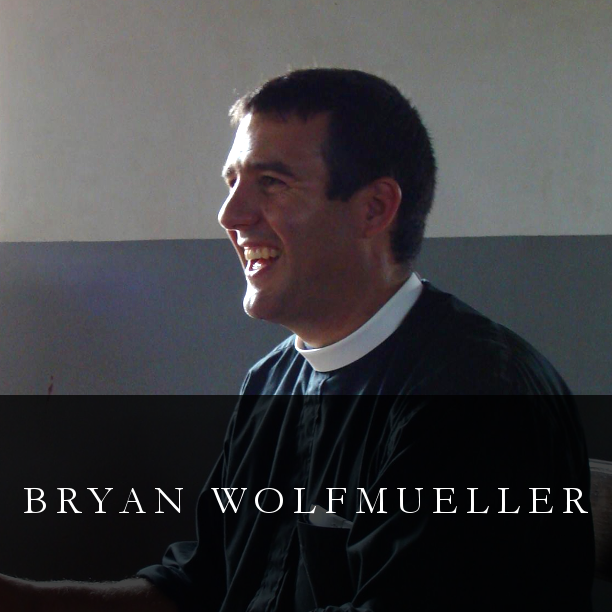I hear more and more about ghosts. There is always someone ghost-hunting on the History channel, or talking with Ghosts, whispering to Ghosts, looking for Ghosts or running from them. Hollywood seems obsessed with ghosts. In fact, the Materialistic worldview of Hollywood, if it were consistent, would teach that death is the end, and we cease to exist when we cease breathing. But becoming a ghost when we die seems to be the preferred narrative.
A ghost is the disembodied soul of a person, normally hanging around to cause some sort of trouble. We do believe that when we die our bodies are unnaturally separated from our souls, but our souls do not linger. The souls of the Christians go to heaven, as Paul teaches, “we are of good courage, I say, and prefer rather to be absent from the body and to be at home with the Lord” (2 Corinthians 5:8). The souls of the unbeliever go to hell (Luke 16:23). The idea of the soul of a departed hanging around is distinctly unbiblical.
There are a few places in the Bible where people think they see a ghost, and the results are never good.
The Vision of Eliphaz
In Job chapter four Eliphaz, one of Job’s “friends”, opens his mouth to report his vision of a ghost. Job had lost just about everything, his family, his livelihood, his health, and his friends had sat with him in a pile of ashes for a week. The silence is broken by Eliphaz.
This is a strange text.
“Now a word was brought to me stealthily; my ear received the whisper of it. Amid thoughts from visions of the night, when deep sleep falls on men, dread came upon me, and trembling, which made all my bones shake. A spirit glided past my face; the hair of my flesh stood up. It stood still, but I could not discern its appearance. A form was before my eyes; there was silence, then I heard a voice: ‘Can mortal man be in the right before God? Can a man be pure before his Maker?’” (Job 4:12–17).
Eliphaz gets his theology from this spirit, and the theology is bad. He is rebuking Job for claiming righteous before the Lord. Now, it is true that no one is righteous by their works, but Job never claimed (at least until the end) this kind of righteousness. Job claimed the righteousness of faith, the righteousness revealed in the sacrifice. This spirit is opposing the Gospel and the comfort that Job had in the Lord’s Word. This spirit’s teaching to Eliphaz is a doctrine of despair.
Saul and the Witch of Endor
1 Samuel 28 is another strange text. The prophet Samuel has died (1 Samuel 25:1). David has been anointed king, but has not taken the throne. Saul is still the acting king of Israel, and his attention is split between assaulting David and fighting the Philistines.
The Philistines have mustered an army, and Saul has called all Israel together to fight. Normally Saul would ask Saul if the Lord would have mercy on them and give them the victory, but Samuel is gone. Saul prays, but there is no answer. He consulted the other prophets, paid attention to his dreams, but there was no answer, and Saul was terrified (1 Samuel 25:5-6).
Saul, then, puts on a disguise and goes to Endor where there was a witch who had not been exiled. Saul asks her to call up Samuel from the dead. Here’s the conversation:
Then Samuel said to Saul, “Why have you disturbed me by bringing me up?” Saul answered, “I am in great distress, for the Philistines are warring against me, and God has turned away from me and answers me no more, either by prophets or by dreams. Therefore I have summoned you to tell me what I shall do.” And Samuel said, “Why then do you ask me, since the Lord has turned from you and become your enemy? The Lord has done to you as he spoke by me, for the Lord has torn the kingdom out of your hand and given it to your neighbor, David. Because you did not obey the voice of the Lord and did not carry out his fierce wrath against Amalek, therefore the Lord has done this thing to you this day. Moreover, the Lord will give Israel also with you into the hand of the Philistines, and tomorrow you and your sons shall be with me. The Lord will give the army of Israel also into the hand of the Philistines” (1 Samuel 28:15–19).
This, again, is a teaching of despair, despair of God’s mercy, a sermon with no hope. Saul listened to the preaching of the ghost, and ended up falling on his own sword in despair (1 Samuel 31:1-7).
What is going on here? Did the ghost of Samuel really come back from the grave to preach despair to Saul? Or is this ghost of Saul something else, a spirit taking the form of Samuel to deliver false doctrine? This, in fact, is what is appear to be, a demon disguised as Samuel to bring destruction.
The New Testament
There are two passages in the New Testament where ghosts are mentioned. The first is when Jesus is walking across the water as the disciples were fighting the wind to cross the sea.
But when the disciples saw him walking on the sea, they were terrified, and said, “It is a ghost!” and they cried out in fear. But immediately Jesus spoke to them, saying, “Take heart; it is I. Do not be afraid.” (Matthew 14:26–27).
They thought it was a ghost, but were wrong. The same thing happens after the resurrection.
As they were talking about these things, Jesus himself stood among them, and said to them, “Peace to you!” But they were startled and frightened and thought they saw a spirit. And he said to them, “Why are you troubled, and why do doubts arise in your hearts? See my hands and my feet, that it is I myself. Touch me, and see. For a spirit does not have flesh and bones as you see that I have.” And when he had said this, he showed them his hands and his feet. (Luke 24:36–40).
Again the disciples though Jesus was a ghost, and again they were wrong. Jesus has His body; He is raised.
Necromancy
Necromancy is the act of trying to communicate with the dead, and it is strictly forbidden in the Scriptures. It is included in the prohibition of witchcraft and satanic arts in the Second Commandment.
“Do not turn to mediums or necromancers; do not seek them out, and so make yourselves unclean by them: I am the Lord your God” (Leviticus 19:31, see also Leviticus 20:6, 27, Deuteronomy 18:11, 2 Kings 23:24, 2 Chronicles 33:6, Isaiah 8:19, 19:3).
The Bible puts the voice of the dead, the teaching of Ghosts, in opposition to the voice to the Lord. One delivers death, the other delivers life. It is only in the Lord’s teaching that we have life and hope and God’s good pleasure.
Ghost Theology
There is, then, a ghost theology, a teaching that comes when we believe that the souls of the dead linger around us and interact with us.
Luther called out the ghosts for what they were: demons disguised as the souls of the departed to deliver false teaching about life after death.
From this it has followed that evil spirits have perpetrated much knavery [exercised their malice] by appearing as the souls of the departed, and with unspeakable [horrible] lies and tricks demanded masses, vigils, pilgrimages, and other alms. All of which we had to receive as articles of faith, and to live accordingly; and the Pope confirmed these things, as also the Mass and all other abominations. Here, too, there is no [cannot and must not be any] yielding or surrendering. (Smalcald II.II.16-17)
Who the ghosts really are is proven by their teaching. The ghosts of the middle ages taught purgatory, proving that they were the demons.
Our ghosts today don’t teach purgatory, but works righteousness. Consider this: the ghosts are trapped here, and unable to go to the light and rest because there is some wrong that needs to be righted. There is a sin that needs atoning, a work that needs doing, reconciliation that needs to be accomplished, and when the work is done the ghost is free to go to its rest. The ghost is stuck because there is a work to do.
This theology completely contradicts with the Scripture, with the good news of the Gospel. “For by grace you have been saved through faith. And this is not your own doing; it is the gift of God” (Ephesians 2:8), but not for the ghost. They are saved by their works, no Jesus necessary.
The “Ghost Worldview” also denies judgment, have an afterlife without Jesus, and denies the resurrection of all flesh.
These false teachings prove the source. There is a spirit interested in this perversion of the Gospel. Luther’s diagnosis is as correct today as it was then, the demons deceive many in the guise of the ghosts.
The Christian doesn’t need to hear the voice of the dead, but the living voice of the living God, the voice of mercy and truth in Christ, which is our confidence in life and in death.



 RSS Feed
RSS Feed
